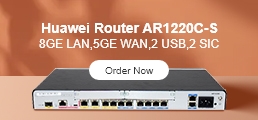1. What Is 5G?
5G is the fifth generation of wireless technologies used to communicate between different mobile devices. It is supposed to be much faster and allows for more devices to be used at the same time. The "G" in 5G stands for "generation".
As smartphones replace other devices as the main personal computer, along with the growth of connected devices such as smart TV and smart speakers, having a reliable and faster internet speed become ever more important for our daily lives.
5G has three bands, millimeter waves (high-band), mid-band, and low-band. The millimeter wave is the fastest, with speed reaching 1-2 Gigabits per second. In theory, you could download an entire Netflix movie with a click.
2. How Is 5G Different From 4G LTE, 3G, And 2G?
The biggest difference here is speed. There has been study indicating that 5G could reach a speed of 10 gigabits per second, 20 folds faster than 4G.
The second difference is in latency, the "lag time" between device communication. This means with 5G, more activities through the internet could be more "real-time". For example, remote surgery could become a reality and driverless cars could communicate with each other to avoid collision in milliseconds.
The third difference is in connectivity. 5G could support one million devices per square mile versus 10K-100K for 4G. This is 100 times better.
The two biggest cons for 5G are cost and range. Because 5G uses micrometer waves to reach mobile devices, it has a much shorter range compared to 4G due to the nature of the electromagnetic spectrum. Verizon Ultra Wide Band technology cell could reach 1500 ft. This means we would need a different 5G small cell for every single block of Manhattan, and more in rural areas due to lower density.
Because of the higher number of cell towers needed, 5G is going to cost significantly more.
|
Generation |
2G |
3G |
3G HSPA+ |
4G |
4G LTE-A |
5G |
|
Max speed |
0.3Mbps |
7.2Mbps |
42Mbps |
150Mbps |
300Mbps-1Gbps |
1-10Gbps |
|
Average speed |
0.1Mbps |
1.5Mbps |
5Mbps |
10Mbps |
15Mbps-50Mbps |
50Mbps and up |
3. Did 5G Cause The Coronavirus COVID-19?
No. The US Federal Emergency Management Agency (FEMA) and Federal Communications Commission (FCC) stated very clearly that: "5G technology does NOT cause coronavirus."
In early January, there were several websites posting about the 5G high frequency radio waves weakening the human immune system and causing the Coronavirus COVID-19 outbreak to occur in Wuhan. There have also been claims that the 5G higher frequency millimeter waves helped mutate the SARS virus into COVID-19.
Wuhan was one of the first places in China to roll out 5G. However, other large Chinese cities like Beijing, Shanghai and Guangzhou also had the same technology rolled out at the time the Coronavirus outbreak occurred.
According to the UK Public Health agency, there is no evidence that 5G can damage the immune system, cause brain tumors, or have any significant biological effect on human health.
4. Are 5G Towers Dangerous To Our Health?
There are several studies that suggest prolonged exposure to radiofrequency electromagnetic fields could increase the risk for cells to be damaged, a possible cause of cancer. However, the findings of these studies are not unique to 5G but also applicable to 4G, 3G, and other forms of wireless communications like the WiFI in your home.
In 2011, the World Health Organization's International Agency for Research on Cancer (IARC) published a paper indicating this risk to the public.
In November 2019, the National Toxicology Program published a study of radio frequency radio exposure in rats found concluded that "Exposure to RFR caused decreased body weights of pregnant rats during gestation and lower birth weights in their offspring. However, a few weeks after birth body weights returned to normal and were similar to non-exposed rats. In general, RFR-exposed male rats lived longer than non-exposed rats."
The two studies above are neither conclusive nor deny that 5G is dangerous, but that ALL wireless communication technologies could be harmful in a higher dose. 5G is no more or less dangerous compared to previously deployed technologies like 4G or 3G.
5. Conclusions
Over-exposure to any man made technologies could potentially be harmful and 5G is not unique. However, 5G is no more or less safe compared to 4G or 3G or even your home wifi.
5G did not cause Coronavirus COVID-19 and it did not contribute to the spread of the pandemic in any way.
By the way, you can check the price of 5G Devices.
Learn More:
Compare Samsung Galaxy Fold vs. Huawei Mate Xs
FAQs of Xiaomi Redmi K30 5G Phone
How Will 5G Affect Android and IOS Apps?
Realme X50 5G vs. Realme X50 Pro 5G vs. Realme X50m 5G Phone
What Samsung Phones Are 5G Compatible?
What is the difference between 4G and 5G?



















































































































